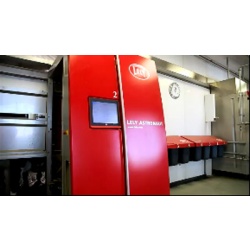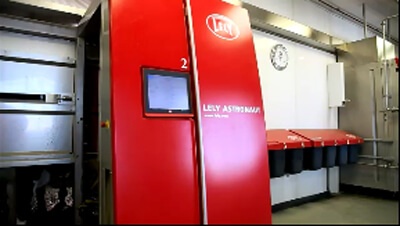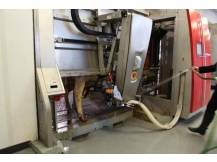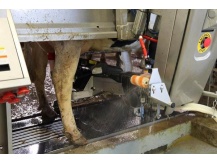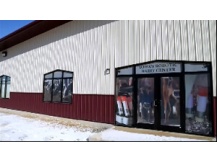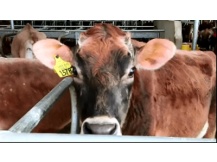
Robotic Dairy has been in the works for more than a year at the Iowa Dairy Center
Having robots milk dairy cows might sound like the stuff of science fiction. But the system has been a reality since last December at the Iowa Dairy Center just south of the NICC campus in Calmar.
The new $1.7 million robotic milking system and dairy barn was designed by Brickl Brothers of West Salem, Wisconsin and built by Heying Lumber of Calmar and Superior Building of Monona, with the robotic milking system installed by Fitzgerald Inc, of Elkader.
A ribbon-cutting for the new Robotic Dairy Center will be held at 2:30 p.m. Thursday as part of an open house from 2:00 p.m. until 7:00 p.m. at the Iowa Dairy Center just south of the NICC Calmar campus on Highway 150.
Iowa Dairy Center coordinator Megan Kregel predicts the robotic technology will get more and more popular in the Midwest. It allows family-owned farms to keep functioning even when the owners attend basketball games, church services, funerals or any other of a number of events away from the farm. The dairy cows enter the robotic milking machines whenever they want, with computers taking a number of readings on each cow and the milk the cow produces--information that gives the dairy owners a better chance of spotting potential problems earlier.
NICC dairy science instructor David Lawstuen says robotic technology is "tailor-made for the Midwest." For example, a farmer can install two milking robots for a 120-cow herd and milk 24 hours a day without having worries about whether employees will show up for work.
Lawstuen says studies have shown that if farms switch to robotic milking and also use sand for bedding, milk production increases an average of 17 percent. Lawstuen says that will result in "a major financial gain." That's even with the average price of building a new robotic milking barn ranging from $800,000 to $1.2 million.
Both Kregel and Lawstuen point out that the success of dairy operations contributes to the economic health of local communities throughout Northeast Iowa.
Iowa's Dairy Center serves NICC students enrolled in Dairy Science, Large Animal Veterinary Technician, Pre-Veterinary Medicine and other agricultural programs. Students gain critical hands-on learning experiences with the 300-cow herd located at the center. Lawstuen says the new robotic milking system will enhance NICC's agricultural education program. Already a number of high school seniors who want to go into agriculture have told NICC they plan to attend classes there in the fall and Lawstuen says the students are a "Who's Who" of 4H/FFA students from around the area.
Site designed and maintained by Iroc Web Design Services©.
Your Small Business Web Design Solutions.™
